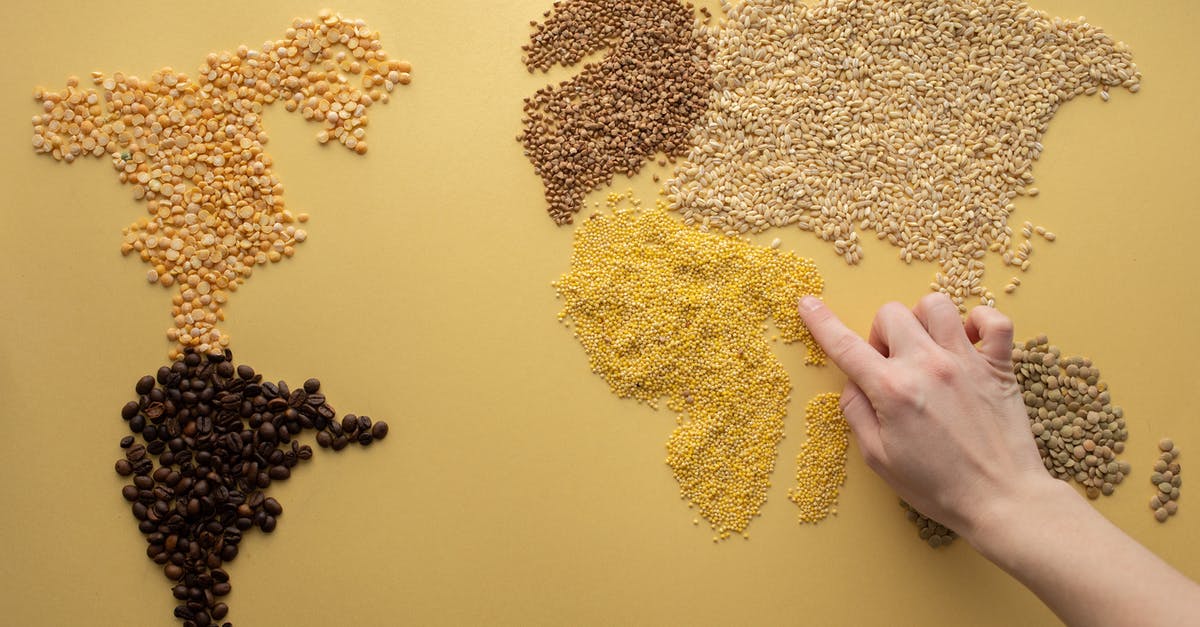How does lentils' nutritional profile change in germinating lentils in water?

By the term "terminating lentils in water" I mean a similar thing to sprouting thing such as alfalfa in water. The crux difference is that lentils do not really sprout, they germinate because their core is removed.
Wikipedia here states that:
Dried lentils can also be sprouted by leaving in water for several days. This changes their nutrition profile.
so what does it mean? I am always looking for getting most out of bucks but sprouted beans taste good so trying with lentils. I like lentils due to their high protein content. I am unsure what happens to lentils in sprouting. Does sprouting just break some starch to smaller carbon chains if so what does it mean in terms of protein content? Some energy is surely lost in sprouting as the bad water is thrown away. But how do the nutritional values change?
[Update]
The word sprouting is misleading in discussing lentils. The core of lentils is removed so the process is substantially different to sprouting things such as alfalfa where they totally transform the form. The transformation of lentils is because the seeds react to water like after winter, bacteria breaks the long compressed chains of protein to more accessible forms such as amino acids which people would anyway break, saving energy for people in the breakdown process (similar thing in meat heating where long protein chains get shorter). The generated smelling stuff is bacterial junk due to the process. According to my friends, experts in the field, many questions considering taste, fermentation, sprouting and the protein breakdown are unsolved.
I cannot unfortunately access some current research papers on the issue, here, but there is a promising paper "Nutritional assessment of raw, heated, and germinated lentils" by G Urbano (1995). The technical jargon for this problem is apparently germinated lentils. I don't use the term sprouting to stress the uniqueness of the process, not having the core. So how is the nutritional profile different between raw lentils and germinated lentils in water?
Best Answer
I do not have any information on the change itself, but neither does that claim in Wikipedia.
However, I would refer you to the discussion page of lentil's and read over the community's discussion regarding the article's nutrition claims generally. They are not pleased with many of the claims, and have been active in moderating it. Also of note, the claim has no citation.
Upon my reading, I would not take for granted that the minor act of sprouting in water changes nutritional value substantially, especially as compared to deep-frying them or other processes.
That said, you might refer to the general sprouting article:
These nutrients are essential for human health. To clarify, the nutritional changes upon germination & sprouting have been summarized below. Chavan and Kadam (1989) concluded that - “The desirable nutritional changes that occur during sprouting are mainly due to the breakdown of complex compounds into a more simple form, transformation into essential constituents and breakdown of nutritionally undesirable constituents.”
It goes on to explain that, according to studies done by Chavan & Kadam (1989), Cuddeford (1989) and Shippard (2005), changes during the sprouting process result in:
- Increases in protein quality
- Increases in crude fiber content
- Increases in essential fatty acids
- Increases in vitamin content
The article cites a claim from the Shipard (2005) study: "“When seeds are sprouted, minerals chelate or merge with protein, in a way that increases their function.”
Pictures about "How does lentils' nutritional profile change in germinating lentils in water?"



Do sprouted lentils have more nutrients?
Sprouted grains and legumes are claimed to be higher in nutrients and more easily digestible than unsprouted varieties.Do sprouted lentils have less carbs?
Protein and Carbohydrates One cup of lentils contains 17 g of carbohydrates, but because sprouted lentils have a low glycemic index, they are not "bad" carbs.What is the difference between sprouted lentils and regular lentils?
Typically, lentils need to be cooked first to be easily digested. But sprouting neutralizes phytic acid and facilitates the bioavailability of nutrients like B vitamins and vitamin C. And on top of being good for you, sprouting opens new avenues for flavor: Sprouted lentils are grassy, crunchy, refreshing, and filling.Does protein content change after sprouting?
For instance, several studies show that sprouting helps increase protein content. Sprouts also tend to contain higher levels of essential amino acids, with certain individual amino acids increasing by as much as 30% (4, 5 , 6 ). In addition, the proteins in sprouts may also be easier to digest.Exploring How Lentils are Grown \u0026 Their Sustainability Attributes
More answers regarding how does lentils' nutritional profile change in germinating lentils in water?
Answer 2
I can speak from personal experience that I sprout ALL beans prior to eating them. I "germinate" lentils, too (LOL.) I do this precisely because of the article referenced above! In the process of bean germination, the chemical/sugar that causes most gas and bloating in humans disappears! This is a big deal to me.
Soak overnight until little bubbles appear on the surface of the water. Transfer to a colander and rinse well. Spread them along the sides of the colander and place on the counter. They will develop a pleasant, unusual smell. Rinse them twice a day until their "tails" form - time to eat them! Raw or cooked. If they develop an unpleasant smell, rinse very, VERY well until it is completely gone. If you can't get rid of it, do NOT eat them.
Sources: Stack Exchange - This article follows the attribution requirements of Stack Exchange and is licensed under CC BY-SA 3.0.
Images: cottonbro, Kampus Production, Vlada Karpovich, Monstera
